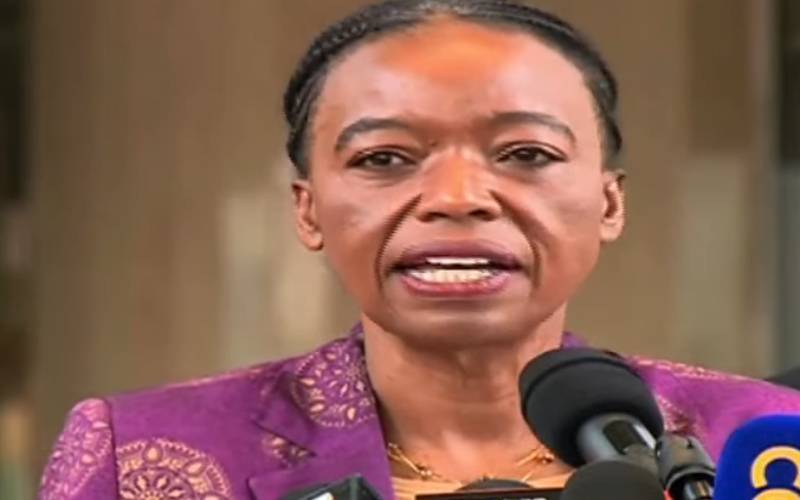×
The Standard e-Paper
Fearless, Trusted News

Mining CS Monica Juma, who is also the Acting Petroleum CS, addressing journalists at Kawi Complex in Nairobi on April 14, 2022. [Brian Okoth, Standard]
Acting Petroleum Cabinet Secretary (CS) Monica Juma projects that the fuel crisis in the country will be resolved within 72 hours from Thursday, April 14.